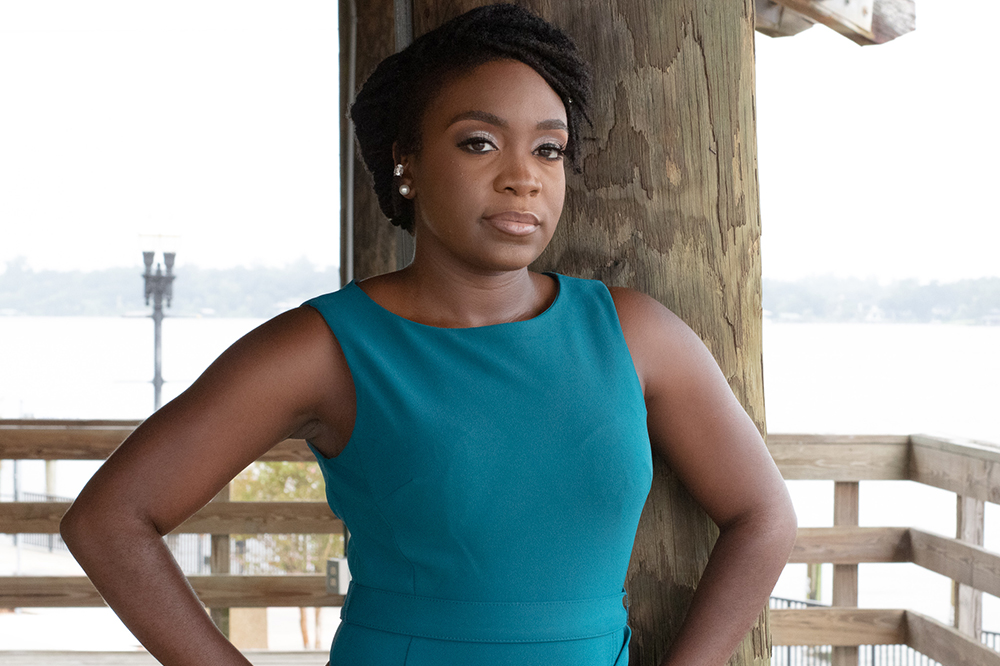Talking Mental Health with Coach Shanequa Thomas

It’s safe to say that 2020 was devastating for everyone. Who would have thought after the clock struck midnight on January 1, 2020, we would have encountered a global pandemic, racial and political tensions would be at an all-time high, and on top of all of that, we’re still dealing with the woes of everyday life? Now that the world is returning to a sense of new normalcy, more people are engaging in conversations about the importance of sustaining a well-balanced mental health and discovering mental health practices that can help them stay sane as they navigate life.
May is mental health awareness month, and one of the purposes of this is to #breakthestigma surrounding mental health and illnesses. Coach Shanequa Thomas is a local mental health advocate and coach, who is actively working to create safe space environments and foster open and transparent conversations about mental health. Like many, Thomas’ journey through mental health is a “pain to purpose” story.
After dealing with personal bouts of depression and feeling defeated because she was constantly paired with therapists who could not relate to her issues, she was driven to start filling the void and become the change she wanted to see.
“I realized there weren’t as many people of color that were in this field, and I always had a desire to help people,” Thomas says.
Her purpose-driven passion, coupled with witnessing people cry for help on social media, encouraged Thomas to enroll in the Clinical Mental Health Counseling master’s program at Northwestern University to become a licensed therapist with a goal of breaking the stigma of mental health in the Black community.
You might have noticed an influx in mental health and self-care ads, blogs, podcasts, posts and anything else that garners audiences’ attention. Society is realizing the value of sustaining a healthy mind and more people are becoming more in-tune with their mental stabilities and recognizes their triggers.
The health of your mind is just as important as getting a yearly physical at the doctor. Thomas describes mental health awareness as “being mindful and aware of what is going in and out of your head. Mindfulness is being present and cognizant of how you handle your emotions, and [being sure to get the] healing you need because [mental health] is an ongoing journey.”
She openly shares her mental health progress in hopes of inspiring others to join the conversation and share their experiences. One of her biggest tips for managing your mental health is by practicing self-care. For Thomas, self-care is “doing something [you] enjoy and being present and mindful while doing that.”
She personally enjoys going to the park and decluttering. However, self-care looks different from person to person, so here are three tips to help you define what your self-care regimen will look like:
Set a Time
We all have busy schedules, but it’s essential to set aside time for yourself where you can wind down and relax without having to stress about daily life. Start small by designating a few hours then eventually work your way up to a full day. Also, if you’re an extreme organizer, you can put it on your calendar as a monthly initiative.
Jot Down Three Activities
Now that you have the time set aside, you need to choose how to make the most out of it. Write a list of social, physical, spiritual, and/or intellectual activities you like to do or don’t have the time to indulge in and then rate them on a scale of 1 -10. They could range from something simple like taking a walk on the beach to putting your phone on do not disturb and diving into a good book. Start with the most desirable activity first then work your way down the list as you develop more time.
Journal Through It
An effective way to become more aware of your emotions is by identifying them through journaling. It’s a great record keeper, as well as it’s extremely accessible. Don’t have time to jot something down? Just use your phone to create audio journals while you’re on the go or type a mental note! Also, you don’t always have to journal about an event or your emotions. Instead, you can find great journal prompts that fit your interests on Pinterest.
Thomas is currently a mental health coach – not to be confused with a life coach, who specializes in setting and achieving goals – working to become a therapist. While a mental health coach can give advice and suggestions along with providing resources, a therapist is more in-depth and can clinically diagnose and treat mental illnesses as well. Thomas is a huge advocate for therapy and recognizes that some people are reluctant to visit a therapist because of the stigma surrounding it. However, there are many benefits to seeing one.
“Therapists hold you accountable,” she says. “They are a listening ear, and not only [do they] provide resources, but they are also educating at the same time. It’s ultimately relationship building.”
The first step to initiating a therapeutic relationship is to do your research. You want to find a therapist who is relatable and can identify with your interests and understand your issues.
One way that Thomas is working to create safe spaces in Jacksonville is through her community event called Gracious Space. This is a brunch-themed outing geared towards millennial women, so they can “[find] fellowship, talk and laugh with each other, and learn from each other.”
The next event is June 27. Since this is a small, intimate gathering, tickets go fast, so be sure to follow @_graciousspace for further details and upcoming events. The best part is it is BYOW (bring your own wine), so grab your girls, grab your wine and get ready for a good Sunday evening! You can also connect with Thomas at @coachnequa_t to keep up with all things mental health.
Enjoy this piece? Consider becoming a member for access to our premium digital content. Support local journalism and start your membership today.

